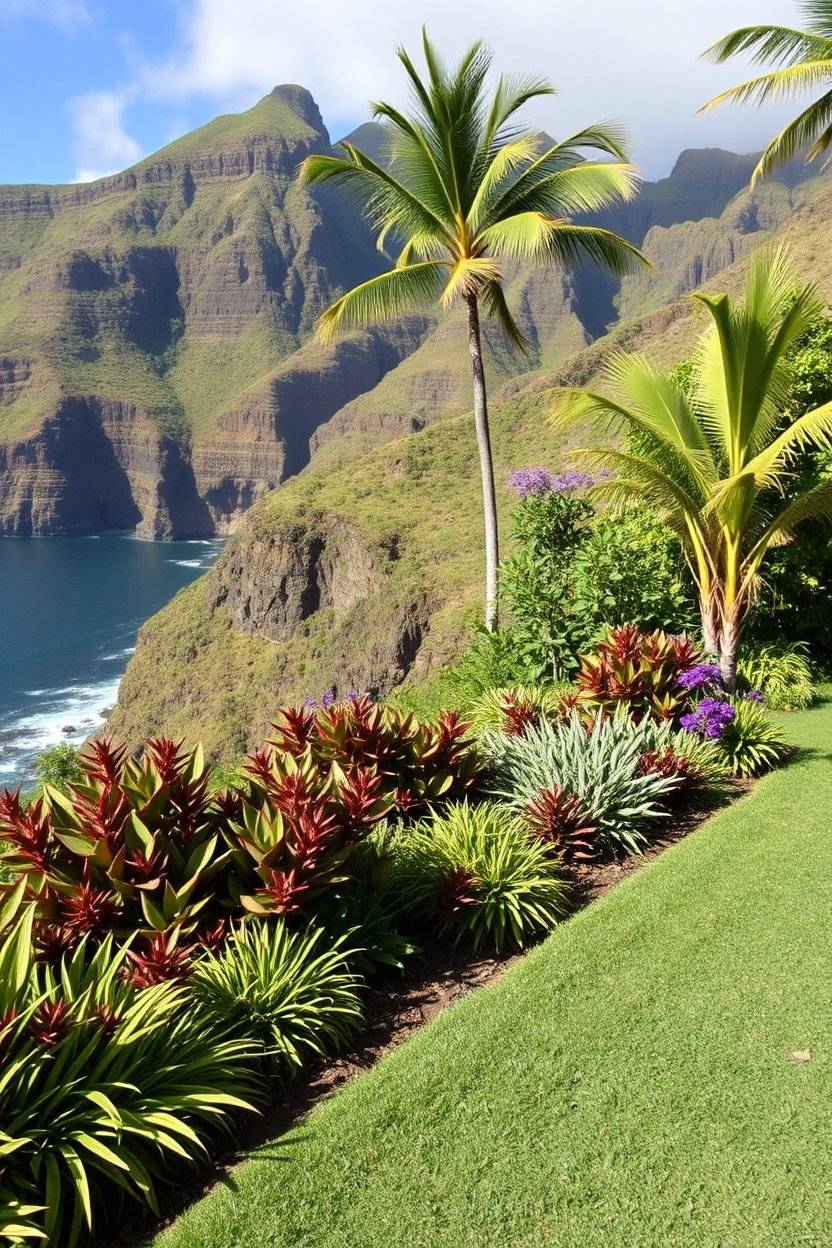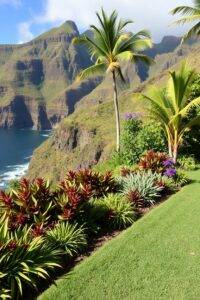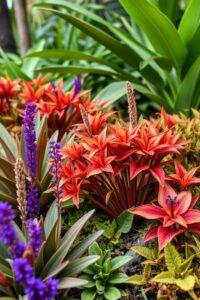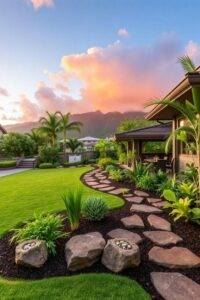Sustainable landscaping practices are essential for maintaining a healthy and thriving landscape while minimizing your environmental impact. By choosing drought-tolerant plants and implementing efficient irrigation systems, you can significantly reduce water consumption. This is particularly important on the windward side of Oahu, where water conservation is crucial. Using native plants is another key aspect of sustainable landscaping, as they are well-adapted to the local climate and require less maintenance. Composting organic waste from your yard can create nutrient-rich soil amendments, reducing the need for chemical fertilizers. This approach promotes soil health and reduces the environmental impact of chemical fertilizers. Rainwater harvesting systems can collect and store rainwater for irrigation, reducing reliance on municipal water supplies. This is a cost-effective and environmentally friendly way to conserve water. Choosing low-maintenance landscaping designs can significantly reduce the need for pesticides and herbicides. This approach promotes a healthier environment for both your plants and the local ecosystem. By selecting plants that are resistant to common pests and diseases, you can minimize the need for chemical treatments. This approach is not only environmentally friendly but also cost-effective in the long run.
Sustainable Landscaping Practices for Oahu’s Windward Side
Implementing sustainable landscaping practices is crucial for maintaining a healthy and thriving landscape while minimizing




